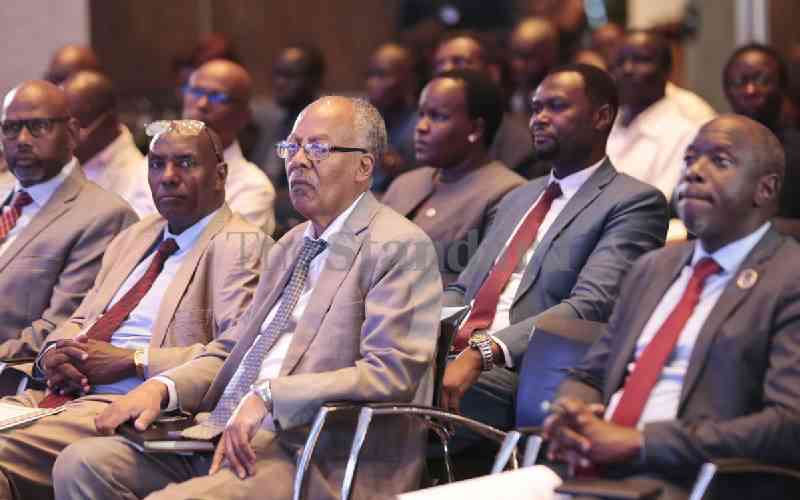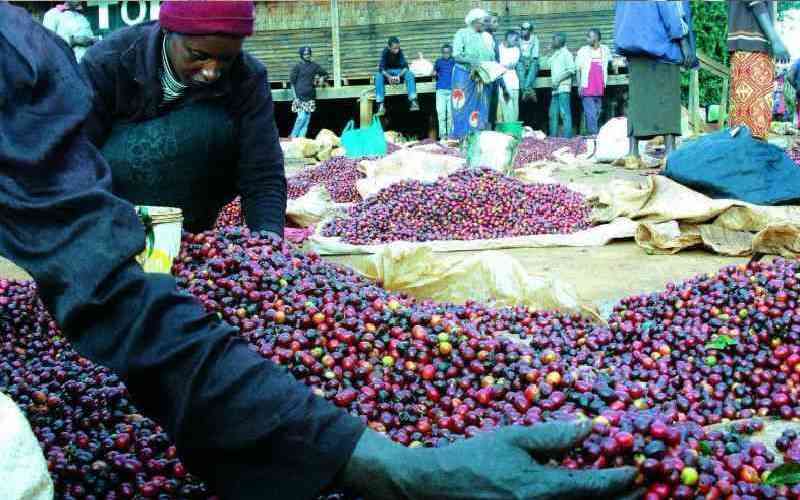
At least 1.8 million people in Arid and Semi-Arid Lands (ASALs) counties in Kenya face acute food insecurity.
This makes part of the total 42 million people in the other five countries of the Intergovernmental Authority on Development (IGAD), including Djibouti, Eritrea, Ethiopia, Somalia, South Sudan, Sudan and Uganda and the situation is now categorised under (IPC Phase 3 or above), also known as "Crisis" level.
This is according to the seventh IGAD Regional Focus of the 2025 Global Report on Food Crises released Tuesday in Nairobi.
However, the number of Kenyans facing hunger has reduced since it was projected to be 2.8 million under crisis or worse (IPC Phase 3 of above) between April and June 2025, based on 17 percent of the population analysed.
The Kenyan situation, according to Charity Mumbua, a food security specialist at IGAD, is due to prolonged drought in the ASAL counties in addition to suppressed rains since 2024.
"The number of people facing high levels of acute food insecurity has tripled over recent years – from 13.9 million in 2016 during its first edition to 41.7 million in 2025," said Mumbua.
Sudan and South Sudan are the most severe food crises in the region, with Sudan currently having the largest highly food-insecure population in the region at 24.6 million and 7.7 million, respectively, with famine and risk of famine in multiple areas.
South Sudan continues to have the largest share of people (57 per cent) in IPC Phase 3 and above in the region, with two of its counties at risk of famine.
Sudan has been at war for three years now, where Rapid Support Forces(RSF), which recently formed a parallel government, is fighting with the Sudan Armed Forces(SAF) in Darfur and Kordofan areas.
The war, which has caused the displacement of 10 million has become the world’s largest displacement crisis with four million having fled to neighbours according United Nation’s Office for the Coordination of Humanitarian Affairs (OCHA).
The OCHA also said last week that 30 million people (two-thirds of the population) need aid in the country.
From conflict to economic challenges and climate extremes, the drivers of acute food insecurity in the IGAD region are interlinked and mutually reinforcing, increasing vulnerabilities, undermining resilience and reversing development gains.
The hunger situation is expected to deteriorate further, as the latest forecast by IGAD’s Climate Prediction and Applications Centre (ICPAC) points to drier-than-usual conditions in parts of the region, including southern Ethiopia, Eastern Kenya and much of Somalia.
Some of these areas, particularly central and northern Somalia, have already experienced at least one below-average rainy season, and drought conditions already persist.
Another below-average season risks driving further deteriorations in food insecurity and malnutrition.
Stay informed. Subscribe to our newsletter
Acute malnutrition remains at alarming levels across the region, with 11.4 million children aged 6 to 59 months acutely malnourished in seven member states.
Among them, 3.1 million urgently need lifesaving treatment for severe acute malnutrition. However, due to significant funding cuts, an estimated 1 million people could be left without access to this treatment.
Furthermore, the IGAD region continues to have more forcibly displaced people in the world.
As of the end of June, 23.2 million people were living in forced displacement, including 17.8 million internally displaced (IDPs) and 5.4 million refugees and asylum seekers.
Sudan remains the world’s largest internal displacement crisis with about 10 million IDPs as Uganda continues to host the largest refugee population on the continent, with over 1.9 million.
Displaced populations face some of the worst food security and nutritional outcomes due to a loss of livelihoods and social support networks, and a heavy reliance on humanitarian assistance at a time of reduced funding.
"The food crisis in our region is more than just hunger; it's a stark reminder of the interconnected challenges we face, conflict, the severe effects of climate change, economic shocks, and displacement,” said IGAD's executive secretary Dr Workneh Gebeyehu.
Principal Secretary for ASALs and Regional Development Kello Harsama and who was the chief guest said the report is more than a publication but a call to action.
“It provides us with a clear picture of the situation we are grappling with, and draws attention to the critical issues that we must confront collectively. Indeed, this report comes at a pivotal moment,” said Harsma.







